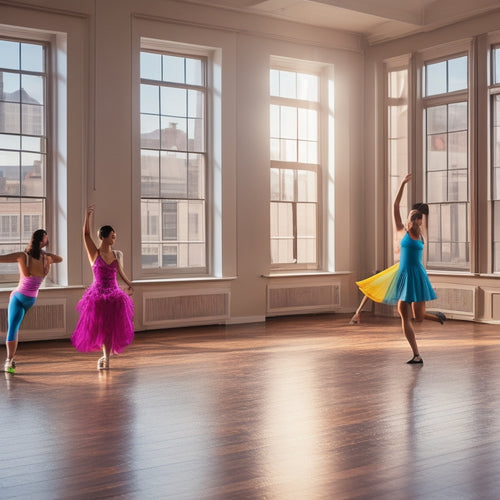
Exceptional Tap Shoes for Seasoned Dancers
Share
Exceptional Tap Shoes for Seasoned Dancers: Elevate Your Performances
As a seasoned dancer, you know the profound impact of exceptional tap shoes. They're not just footwear; they're an extension of your artistry, amplifying your rhythm and transforming your movements into a captivating symphony. In this article, we'll explore the secrets of finding the perfect tap shoes that will elevate your performances to new heights.
Understanding the Anatomy of a Tap Shoe
Before delving into shoe selection, let's unravel the anatomy of a tap shoe. It consists of three key elements:
- Vamp: The front portion of the shoe that covers the dancer's foot
- Quarter: The side panels that wrap around the heel and instep
- Tap Plates: Metal plates attached to the toe and heel of the shoe, responsible for producing the percussive sounds
Choosing the Right Tap Plate: A Journey of Sound and Style
The tap plate is the heart and soul of any tap shoe. It determines the sound and versatility of your performance. Here are the main types to consider:
- Standard Tap Plates: This classic plate design provides a crisp and clear sound, ideal for traditional tap styles.
- Resonator Tap Plates: These plates incorporate a resonator chamber that amplifies the sound, making them suitable for larger stages or outdoor performances.
- Aluminum Tap Plates: Aluminum plates offer a brighter and more percussive sound than steel, often favored by jazz and contemporary tap dancers.
The Perfect Fit: A Symphony of Comfort and Precision
The fit of your tap shoes is paramount for comfort and performance. Look for shoes that hug your feet snugly without constricting them. The toe box should provide ample space for your toes to move freely, while the heel cup should securely support your ankle and prevent slippage.
Consider your arch type when choosing tap shoes. High-arched dancers may need shoes with more arch support, while low-arched dancers may prefer shoes with less support.
Materials for Durability and Style: A Footwear Masterpiece
Tap shoes are often crafted from various materials, each with its own unique characteristics:
- Leather: Classic and durable, leather tap shoes offer a timeless look and a comfortable fit that molds to your feet over time.
- Canvas: Lightweight and breathable, canvas shoes are a great choice for dancers who want a more casual and laid-back look.
- Synthetic Materials: Some tap shoes are made from synthetic materials such as PU leather or microfiber, offering a vegan-friendly and moisture-wicking option.
Additional Features to Enhance Your Performance
Beyond the basics, look for tap shoes with additional features that can enhance your dancing experience:
- Heel Counter: A reinforced heel counter provides stability and reduces ankle fatigue, especially during extended performances.
- Non-Slip Sole: A non-slip sole ensures you can move confidently on slippery floors, minimizing the risk of accidents.
- Lace-Up vs. Buckle: Lace-up shoes provide a customizable fit, while buckle shoes offer quick and easy on-and-off.
Conclusion: The Perfect Match for Your Tap Dance Journey
Finding the perfect tap shoes is a journey of exploration and discovery. By understanding the anatomy of the shoe, selecting the right tap plate, ensuring the ideal fit, exploring different materials, and considering additional features, you can find a pair that aligns perfectly with your unique style and performance needs. May your tap shoes become a cherished companion that empowers you to create unforgettable rhythmic masterpieces.
Related Posts
-

Streamline Your Creative Workflow: Artist's Productivity Hacks
You're tired of creative blocks, wasted time, and missed deadlines. It's time to enhance your workflow! Start by prio...
-

Top New Balance Dance Shoes for Comfort and Performance
If you're on the hunt for top New Balance dance shoes that maximize comfort and performance, consider models like the...
-

Instant Download Card for Dance Recital Performances
Instant download cards are a convenient way to commemorate dance recital performances, providing a seamless solution ...


